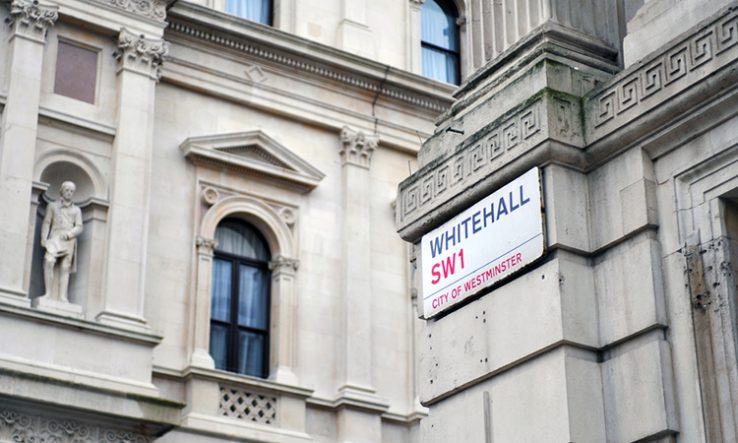
Image: Daniel Gale, via Shutterstock
DfE’s guidance on definition of ‘essential worker’ sparks fears over returning to campus during lockdown
Academics have expressed confusion over who could be counted as a key worker under the government’s latest guidance, while some worry they could be pressured to work on campus during England’s third lockdown.
Updated guidance published on 7 January by the Department for Education confirmed that higher education staff who are needed to deliver teaching or research are considered critical workers, which means they are allowed to travel to work during lockdown, and they can send their children to school or nursery if necessary.
Individual universities are allowed to decide which staff members count as key workers, although they are still expected to support staff to work from home. All teaching was online during the first lockdown last spring, but in the current lockdown face-to-face classes are still ongoing for medicine courses and those who need in-person teaching for professional qualifications.
Research Professional News understands that while some higher education staff have always been classed as key workers, the clarification by the DfE explains that all staff who need to go to campus for work can do so.
But some have said it is still not clear which staff count as critical workers, and they have expressed concerns that staff could be asked to send their children in school and go to campus to work even if they feel it is not safe to do so.
Jo Grady, general secretary of the University and College Union, said the “unclear Covid guidance” had “created more confusion”.
“Given the current stage of the pandemic all staff need to work from home wherever possible and minimise time on campus even where a role is considered essential,” she said.
Grady also warned universities not to ask staff to come to campus when it is not necessary. “No institution should be exploiting critical worker status to encourage staff to send children to school so staff can then be pressured onto campus,” she said.
The guidance—which also released a full list of subjects that allow students to return to campus for face-to-face lessons before mid-February—explained that staff members “who are required to deliver or to support delivery of teaching or research and the provision of appropriate university facilities…are considered critical workers for the purposes of access to education”, including catering, cleaning and library staff.
Although parents who are critical workers can send their children to school, the DfE stressed that they “should keep their children home if they can”.
But Petra Boynton, an independent social psychologist and research consultant, told Research Professional News that allowing university staff to send their children to school “puts huge stressors on teachers who are at risk in terms of their physical and mental health”, as it will increase pressure on available school places.
She added that postgraduate researchers in particular “have been left confused over their status” as critical workers, and that the guidance risked creating “a cascade of harms that begins in universities where staff are either required to do face-to-face work that may be unsafe or unnecessary (if teaching can be delivered online) and offers few protections for cleaners, caterers and admin staff who have largely been neglected in discussions”.
One postgraduate researcher, who did not wish to be named, told Research Professional News they were frustrated that universities could “pick and choose when PhD students class as staff to suit them”. They explained that they felt they were not counted as staff “when we want workplace protections such as pensions or access to a furlough scheme,” but they were counted as staff “when it means we can take advantage of the ability to keep our children in school despite lockdown” and go to work.
A spokesperson for the Department for Education said: “The government’s priority is the education and wellbeing of students, and higher education staff who are required to support that are considered critical workers.
“As with all workers, staff are encouraged to work from home where possible, and our guidance is clear that parents and carers should keep their children at home if they can.
“Universities will be best placed to decide which staff are essential on campus to deliver teaching, research and facilities. They are encouraged to be flexible, particularly for those with childcare needs.”